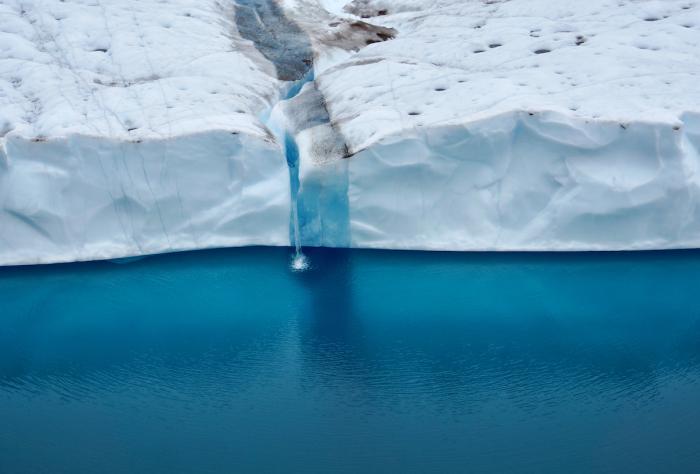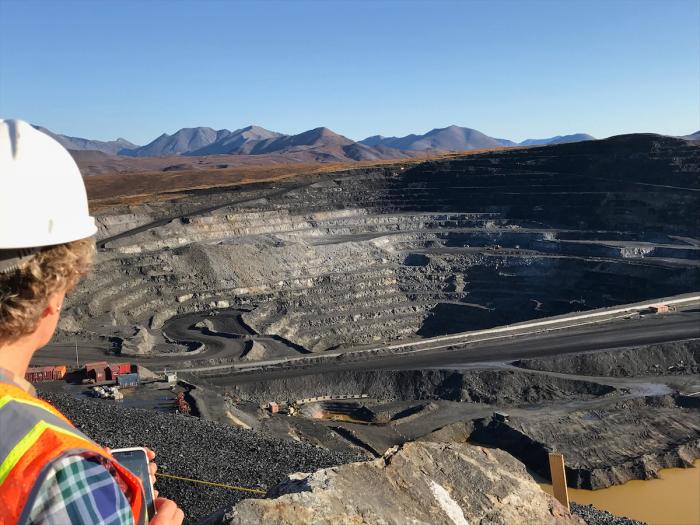By: Isaac Edwards, Senior Counsel, United States Arctic Research Commission
On 15 February 2023, the United States Arctic Research Commission (USARC), an independent federal agency, released its Report on the Goals and Objectives for Arctic Research 2023–2024 (Report). The biennial statement, mandated by the Arctic Research and Policy Act of 1984, helps inform the research plans of the Interagency Arctic Research and Policy Committee (IARPC), with which USARC works closely.
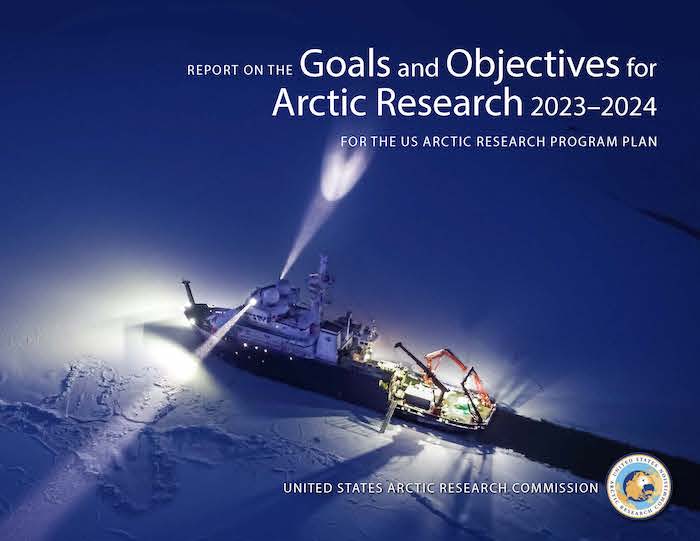
The recently updated National Strategy for the Arctic Region states that coordinated research on the environmental and societal impacts of climate change in the Arctic, and the Arctic's role in global climate dynamics, are to be guided by USARC's reports and IARPC's plans. The Report establishes Arctic research priorities and goals that, when achieved, will inform decision-makers and advance efforts outlined in the United States' Arctic policies, strategies, and plans.
The Report focuses on five goals: Environmental Risks and Hazards; Community Health and Well-Being; Infrastructure; Arctic Economics; and Research Cooperation. In addition, the Report emphasizes a cross-cutting theme of data analytics and informatics, considers the impact of COVID-19 on the Arctic region, and highlights select emerging topics in the region.
Environmental Risks and Hazards
The urgency in addressing environmental risks and hazards in the Arctic is amplified by the accelerated rate of environmental change. Knowledge from research, in advance of disasters, can be used to help prevent or lessen effects. The Report highlights the need to increase emphasis on responding to climate change impacts by focusing on risk reduction, attribution, sustainability, mitigation, and scenario development. Recommendations include: expand knowledge on changes in global ocean levels and ice-sheet thickness; survey and map priority coastal areas to improve marine commerce and coastal community resilience planning; and to better understand the risks of permafrost thaw.
Community Health and Well-Being
Investment from the Infrastructure Investment and Jobs Act will improve human health and well-being in the Arctic, but enduring health disparities between Arctic and non-Arctic residents remain. These include climate-related health and social risks, and food, energy, water, and economic insecurity. Behavioral and mental health challenges were amplified by COVID-19 for many communities, revealing limited care and services. Recommendations include: maternal health research that identifies needed care and barriers to care, specific to remote Arctic communities; the creation of equitable pathways for Indigenous leadership and mechanisms to improve communication and participation at the local level; workforce recruitment/retention in remote communities, especially in the health professions; and fostering partnerships to address substandard air quality in rural Alaska homes.

Infrastructure
Research is needed to apply Arctic-specific technology and innovation to advance sustainable infrastructure in a challenging and rapidly changing environment. These innovations must be considered and adopted through equitable and ethical engagement with communities to meet local needs, creating infrastructure that is practical and functional. In addition to physical infrastructure, human infrastructure—people to teach, create, operate and maintain technology—is also essential. Research recommendations include ways to support built infrastructure, ways to incorporate human health and infrastructure into a "whole-of-government" approach to water and sanitation infrastructure build-out efforts, and encouraging research methods to modify infrastructure to adapt to changing Arctic environmental conditions.
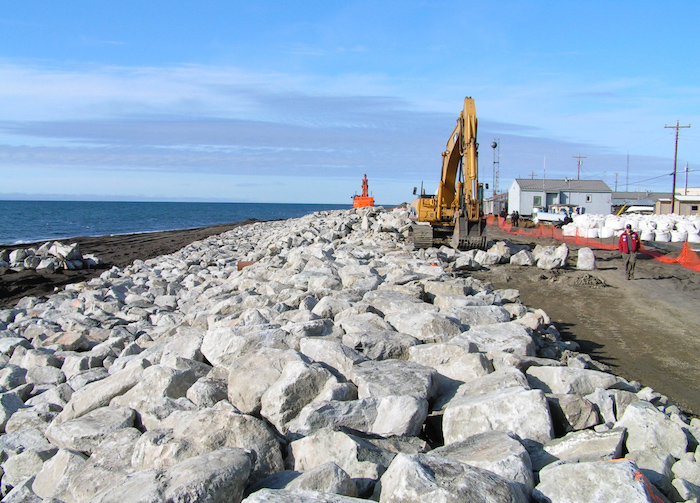
Arctic Economics
While economic research is vital to inform Arctic-relevant policies and decision-making, few economists focus on the region. Economic research can help achieve regional sustainable development and provide a greater understanding of market forces, natural capital, and Indigenous economies. The Report's recommendations seek to advance an understanding of the global economy's impact on the Arctic region, including a worldwide energy transition, Arctic marine operations and shipping, and the creation of an ocean technology testbed to advance mariculture and evolving marine ecosystems.
Cooperation
As many Arctic issues are circumpolar in nature, and inherently transnational, they are best addressed by international research cooperation. Cooperation and co-production of knowledge that is consistent with Indigenous values, rights, and protocols will result in a more genuine collective effort to create greater understanding about the Arctic. US Arctic researcher engagement in the European Union's Horizon Europe, with Arctic-related elements, accelerated progress in developing an international plan for the Joint Program of Scientific Research and Monitoring associated with the Central Arctic Ocean Fisheries Agreement that entered into force in 2021, and researcher adoption of the new standard in international engagement with Inuit released in June 2022 by the Inuit Circumpolar Council are among the international research cooperation goals of the Commission.
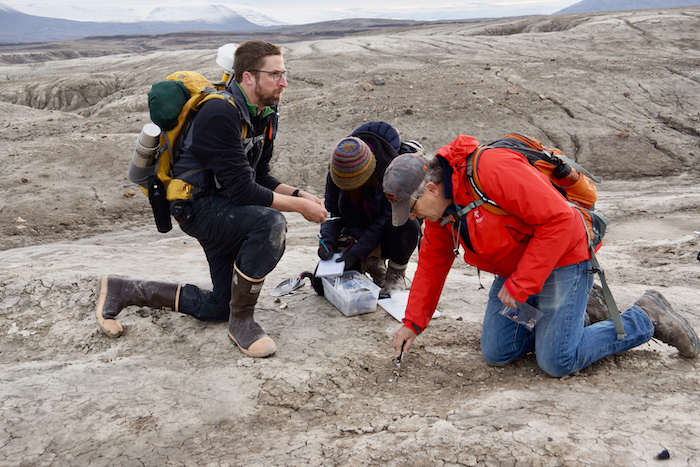
For further information, read the full Report on the Goals and Objectives for Arctic Research 2023–2024. See also the US Arctic Research Commission website for additional information and publications.
About the Author
 Isaac Edwards is Senior Counsel of the US Arctic Research Commission. Prior to joining the USARC, Edwards, who was born in Alaska, worked in the United States Senate for 23 years. He served as Deputy Chief Counsel/Senior Counsel on the US Senate Energy and Natural Resources Committee until January 2021. On the Committee, Mr. Edwards was responsible for Arctic, international energy, and US-affiliated islands issues. He represented Senator Lisa Murkowski (Republican-Alaska) as the US member of the Standing Committee of Parliamentarians of the Arctic Region. He coordinated and prepared remarks for Senator Murkowski's participation in Arctic Parliamentarian conferences, Arctic Council Ministerial meetings, Arctic Circle Assembly conferences, Arctic Frontiers, Munich Security Conference Arctic Security Roundtables, and a variety of other Arctic policy forums.
Isaac Edwards is Senior Counsel of the US Arctic Research Commission. Prior to joining the USARC, Edwards, who was born in Alaska, worked in the United States Senate for 23 years. He served as Deputy Chief Counsel/Senior Counsel on the US Senate Energy and Natural Resources Committee until January 2021. On the Committee, Mr. Edwards was responsible for Arctic, international energy, and US-affiliated islands issues. He represented Senator Lisa Murkowski (Republican-Alaska) as the US member of the Standing Committee of Parliamentarians of the Arctic Region. He coordinated and prepared remarks for Senator Murkowski's participation in Arctic Parliamentarian conferences, Arctic Council Ministerial meetings, Arctic Circle Assembly conferences, Arctic Frontiers, Munich Security Conference Arctic Security Roundtables, and a variety of other Arctic policy forums.

